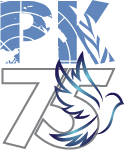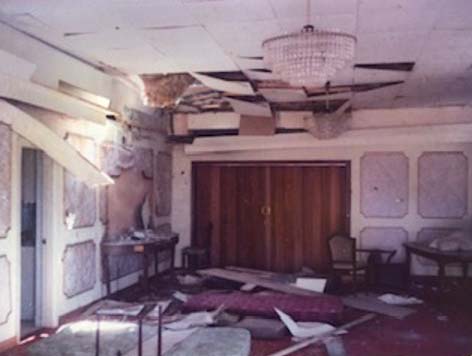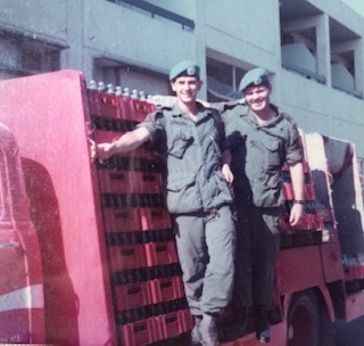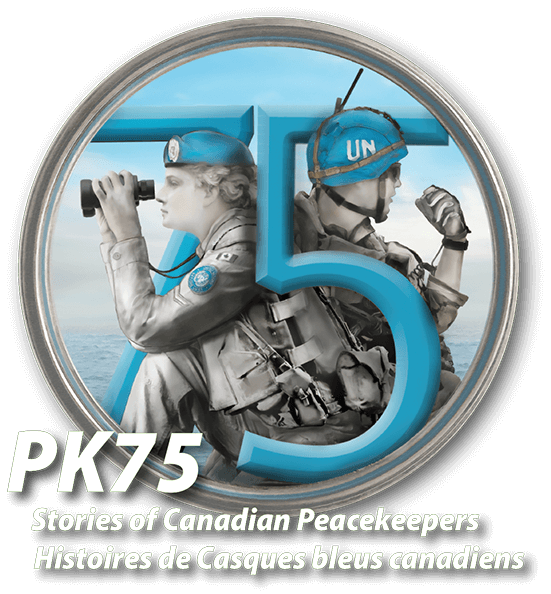

On that August night in 1974 I stepped off a Canadian Forces 707 at Akrotiri airbase onto Cyprus — the Island of Saints, I was met by the warm Mediterranean breeze and the odour of perfumed Cypriot flowers. As a captain, I had been deployed to Cyprus as part of F Company, 2nd Airborne Commando, Canadian Airborne Regiment, in response to the first phase of the Turkish invasion of that island.
We were issued live ammunition and began our long coach journey to our new home, a former U.S. Naval facility on the outskirts of Nicosia. We were here to do a job — IN THE SERVICE OF PEACE. On arrival, we received our orders, colloquially referred to as an O group; (Synchronize watches, Situation…, Mission…, Execution…, Administration and logistics…, Command & signals…), all to be passed down the line in military fashion so that all soldiers in the regiment, including every rookie private, understood their role and knew their duty.
Initially, we were to keep the Greeks and the Turks, as well as the Greek and Turk Cypriots from engaging in full-fledged fighting. This meant establishing observation posts, patrolling the Green Line in the centre of Nicosia and other designated areas, controlling sniping, catcalling, organizing refugee control, and general maintenance of law and order. Then came phase two of the invasion which saw more Turkish troops and equipment arriving along with an offensive air war. Canadians were reinforced with Lynx tracked vehicles, and 106-millimetre recoilless rifles mounted on our armoured personnel carriers (APCs). The regiment was working at a frenetic pace. Concurrent with the operational phase, ammunition, accommodations, maps, bedding, vehicles, cleaning facilities, dehydration prevention, and all other necessary administrative matters had to be dealt with. We were working 24/7 and humour kept many of us going strong:
- How do you expect us to drive on the wrong side of the road?
- This place looks like the trailer park I grew up in.
- Why is yoghurt so warm that we have to drink it?
- Why do the Brits colour code our bread to show us the date that it was made?
- How many times do I have to be asked by the locals “Do you know my cousin in Toronto?
- Why is it hotter in a moving Jeep than when it is sitting still?
- Where do we get the puppy pounders?
Even Routine Orders had humour “SMILE, Running is good for you … if you disagree with this, discuss it with your friendly CSM.”
While on our way to the seaport in Limassol to arrange for offloading of our vehicles from HMCS Provider, I witnessed goats on top of the branches of fig trees, and grapes, being harvested by real Cypriots. Life carried on in Cyprus. In the middle of our tour, I was transferred from F Coy to United Nations Headquarters at Blue Beret Camp. My new job was the Assistant Operations/Information officer. In reality, it was the intelligence section with a British major as my boss and two excellent, highly trained British NCOs, one of whom I keep in touch with to this day. One of my first social interactions with my new boss was him saying to me: “cricket pitch — 1400 hours — do wear white.”
As hard as it may be to believe, I was issued a Ford compact car license number UN 144. That opened up a whole new world — unbridled freedom of movement! My job was extremely interesting and challenging, as we were required to brief the UN commander, on a daily basis, on disposition of all troops on the island, including UN troops, Turkish and Greek Cypriots, as well as any changes in strength, location, casualties, or firefights. UN forces included Canadian, British, Danish, Austrian, Swedish, and Finnish contingents.
As you can imagine, significant travel was required, including meeting with all the other contingents’ intelligence staffs. This often translated into long lunches after our meetings, most of which took place in their locations. The Finnish contingent explained to me the rules for having “two fingers of vodka” followed by a sauna. The Austrian contingent showed me the detailed workings of their new Mercedes G wagons. The Danes always provided wonderful, open faced sandwiches at lunch along with their mandatory Tuborg or Carlsberg beer. The British were in a class of their own. It was always pleasant to chat with members of the Queen Alexandra’s Royal Army Nursing Corps. On a visit to RAF Nicosia, I noticed a sign in the officers mess that read as follows: “If God had wanted the army to fly, he would’ve painted the sky brown.”
As it happened, there was a flight of British Army Sioux helicopters, to which I had regular access for flight reconnaissance. One of my most unpleasant helicopter visits was to Famagusta, a coastal city and former port and resort destination. In August 1974, Famagusta was turned into a ghost town as its Greek Cypriot residents fled in response to the Turkish invasion and the associated air bombardment. Our visit demonstrated to me the nastiness of war as the city was no more than a series of crumbling houses and hotels awash with feral dogs and loose and hungry domestic animals. The city is still abandoned to this day.
My role took me to many parts of the island in search of necessary military intelligence, information, and contacts with UN contingents and local Cypriots. Throughout my travels, I always marvelled at the sights I beheld on this centuries old island.
I saw thousands of flamingoes on the salt lakes of Larnaca, a centuries-old monastery in the Troodos mountains, the ancient amphitheatre of Kourion, and I enjoyed the Amathus Beach Hotel where, incidentally, I enjoyed my first Nescafé after removing a large sliver from the foot of a young Cypriot lad. My tour in Cyprus helped me open my eyes to the world.
Biography
Life for me began in Saskatoon, SK. As a youngster, I was very lucky as I had already set my professional goals:
- To obtain a commission in the Canadian army.
- To become a paratrooper.
- To become a lawyer.
My journey began as a cadet with the Saskatoon Light Infantry and progressed to the North Saskatchewan Regiment, then onward to the Regular Officer Training Plan (ROTP) at the University of Saskatchewan. On graduation, and newly commissioned, I was sent to 2 Canadian Guards in Petawawa, ON, a place I had never heard of. I was fortunate to join the fully mechanized Allied Command Europe, Land [AMF(L)] battalion. The regiment was rebadged to 3rd Battalion, The Royal Canadian Regiment (3RCR) during exercise Green Express in Denmark, my first deployment to Europe. I was fortunate to be chosen to attend the Australian jungle warfare course as well as the mountain warfare course in Kananaskis AB. While serving with the Regiment, we were also deployed to Montréal and Ottawa during the FLQ Crisis, and to Kingston during the Millhaven penitentiary disturbance.
My next goal was the jump course, and being successfully qualified I was posted “back west” to Edmonton, with the Canadian Airborne Regiment. It is with that unit that I deployed, in 1974, to the Island of Saints — Cyprus, in response to the Turkish invasion.
Post Cyprus I took my release and attended law school. Upon graduation, I was fortunate to be hired by a Victoria, BC, law firm of which I ultimately became the managing partner. I immensely enjoyed my 38 years of law practice, all the while remaining with the primary reserve as a legal officer. I was appointed as the Area Legal Advisor (Pacific) right here in Victoria. With a staff of four legal officers, our job was to advise the Area commander of changes in military law, assist with summary trials, boards of inquiry, and conduct courts martial as well as instruction on the Law of War and any other pertinent legal matter.
While attending the U.S. Army law school in Virginia, I was asked by a southern U.S. officer “Do y’all serve catfish burgers at McDonald’s?” I was not quite sure how to respond to that question. I was also somewhat taken aback when some Southerners kept referring to the U.S. Civil War as the War of Northern Aggression. Old grudges remain.
Back to private practice, which I did concurrently with my reserve activities, I was fortunate to have a wonderful clientele, great partners and lawyers, dedicated staff, and a real sense of community. My partners were so generous that they supported me and my family’s three-month deployment to West Germany as one of the lawyers serving with SLAE — Senior Legal Adviser Europe.
My main areas of practice were corporate law, real estate law and trust law. Our firm had — and still has — approximately 15 lawyers, one of the oldest and largest firms in the city. I have also had the privilege of serving on a number of boards including Mount Saint Mary Hospital, the Canadian Corps of Commissionaires, Broadmead Lodge for Veterans, Victoria Estate Planning council, Union Club in British Columbia, Victoria Hospital Foundation, and the Canadian Scottish Regiment Heritage Foundation.
I am also the military member of the Canadian Forces Liaison Council.
I currently reside in Oak Bay, BC, along with my wife Elaine, our three adult children, and their children. In retirement I keep fit and spend oodles of time at our Saltspring Island property, Woodpecker Hollow, chopping wood, building decks, painting rocks white, and generally tidying up, often with an unlit cigar in hand. I have indeed, been fortunate.

Damage to the Ledra Palace Hotel, where we were billeted in Nicosia, Cyprus.

Me and Pete Bradley.


